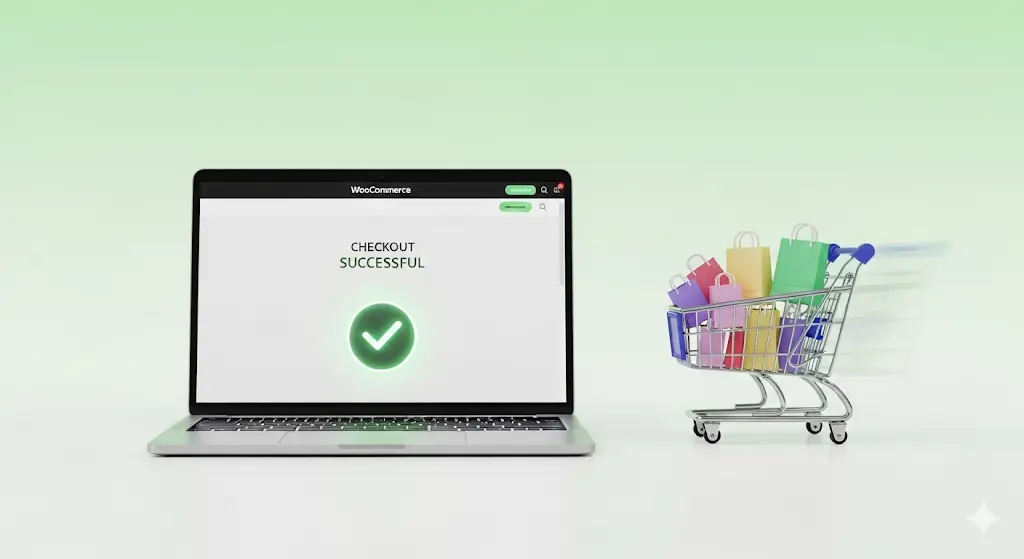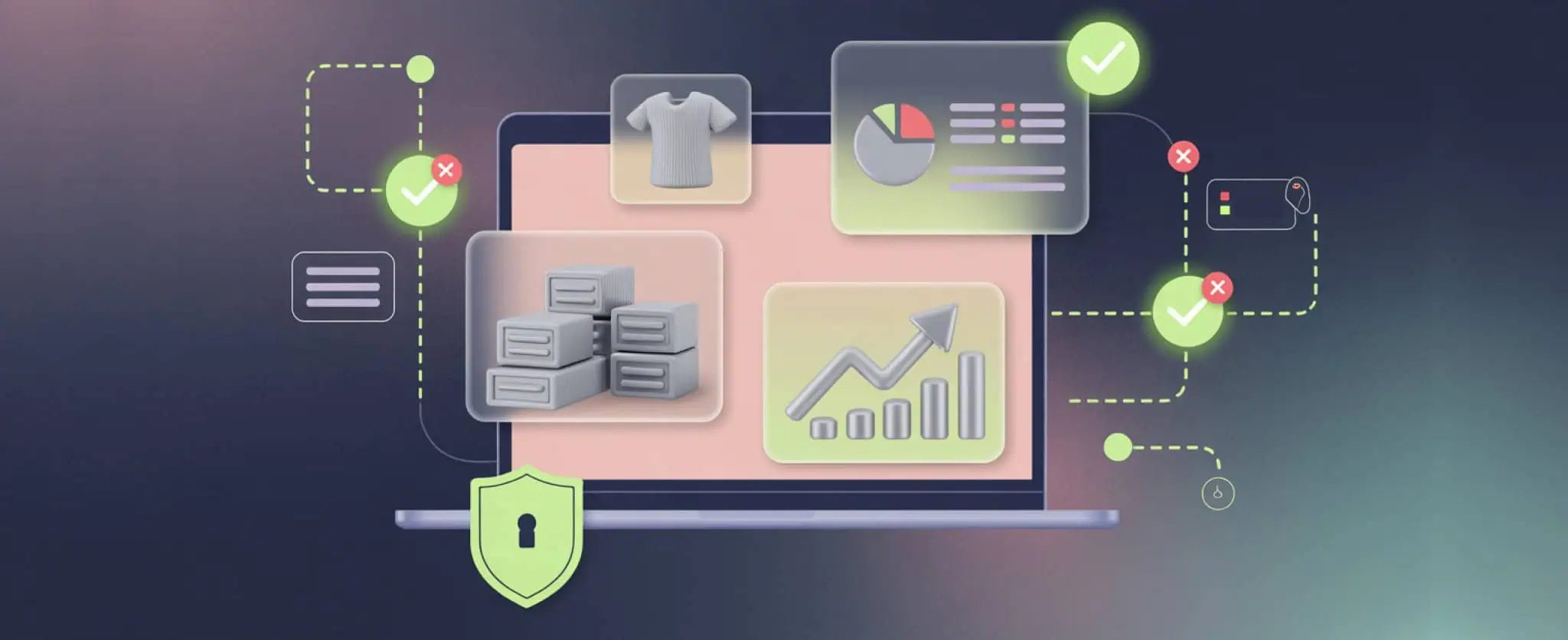
WooCommerce Checkout Optimization: What’s New in 10.1 Release?
Do you know nearly 70% of online shopping carts are abandoned with only 30% of shoppers completing a purchase. That’s not just a random number. It’s lost orders, missed revenue, and frustrated customers.
Most often, the problem starts at checkout. Every extra field, every second of delay, and every confusing instruction push the shoppers away from clicking “Buy.”
That’s why WooCommerce checkout optimization remains critical. With the August 2025 WooCommerce 10.1 release, the platform introduced a faster, smarter, and more reliable checkout flow to reduce abandoned carts and generate more revenue.
WooCommerce one-page checkout has been a huge success, but what does the new update mean for retail merchants? Whether you have a new or old retail store, our WooCommerce developers can help you design conversion-driven checkout page.
This blog breaks down the updates and shows you how to optimize your checkout for higher conversions in 2025. Without further ado, let’s get started.
What’s New in WooCommerce’s Checkout Flow (Release 10.1)?
Let’s find out the new features that WooCommerce 10.1 brings to the table to optimize the checkout process:

1. Fast Checkout Blocks
The old, annoying page loading approach is gone for the good. WooCommerce 10.1’s data-driven checkout blocks load instantly, allowing shoppers to view the full page immediately. No more wait.
Impact: A 1-second delay in page load time can result in 7% fewer conversions. Implement faster page load means WooCommerce merchants have a good chance to close deals.
2. Partial Checkout Updates
Earlier, when shoppers change mid-checkout (e.g., shipping address), the entire page would reload, frustrating them and increasing drop-offs. With WooCommerce 10.1, only the relevant sections of the page will reload, keeping the flow smooth and uninterrupted.
Impact: Baymard Institute says streamlining checkout can increase conversion rates. This update encourages users to complete their purchases without getting frustrated.
3. Faster Express Payments
Express payment options like PayPal and Stripe render more quickly, eliminating the delays caused by skeleton placeholders. Returning buyers can complete their purchases in just a few clicks.
Impact: With 80% of online shoppers abandoning their cart during checkout, offering a seamless payment experience is crucial for converting sales. This update effectively addresses that pain point, increasing the chances of faster, confident conversions.
4. Bank Transfer (BACS) Upgrade
WooCommerce 10.1 has simplified direct bank transfer settings:
- Account number is now optional
- Non-numeric IBANs are supported
- Bank details are visible instantly
Impact: This update introduces more payment clarity, especially for international buyers.
5. Decimal Quantities Restored
Earlier, stores selling by weight, volume, or custom units had trouble allowing fractional purchases. WooCommerce 10.1 restores support for decimal quantities, especially for grocery stores, bakeries, and specialty retailers.
Impact: WooCommerce merchants can expand product catalogs and drive more completed orders by allowing fractional purchases.
Old vs. New WooCommerce Checkout Flow (10.1 Release)
| Aspect | Before (Pre–10.1 Checkout) | After (WooCommerce 10.1+) | Business Impact |
| Page Load Time | Suspense-based loading, blank screens/spinners before content appeared. | Data-driven blocks load instantly, entire page visible immediately. | Faster checkout page reduces bounce rate |
| Steps to Complete Order | Multiple reloads for edits (e.g., changing shipping details triggered full page reload). | Partial checkout updates reload only necessary sections. | Fewer clicks mean smoother UX & fewer drop-offs |
| Express Payments | Skeleton placeholders caused delay before PayPal/Stripe appeared. | Express payment buttons render immediately. | Faster payments for high-value orders |
| Payment Clarity (BACS) | Required account numbers, no IBAN flexibility, details hidden behind extra clicks. | Optional account number, non-numeric IBAN supported, instant visibility of bank details. | Improved trust & reduced payment failures |
| Quantity Options | Decimal/fractional quantities not supported consistently. | Decimal quantities restored (via Store API + blocks). | Enable sales for groceries and weight-based goods |
| Cart Persistence | Carts often lost across sessions for logged-in users. | Persistent carts restored in v10.1.2. | More shoppers return if carts are saved |
Extra Fixes That Support WooCommerce Checkout Optimization
In addition to these major updates, WooCommerce 10.1 and its subsequent patch (10.1.2) introduced several smaller but impactful improvements:
- Persistent Cart Restored: Logged-in users keep their carts across visits, making it easier to return and finish checkout.
- Flexible Shipping: Formula-based flat rate shipping gives merchants more control over pricing, while customers see clearer, predictable costs.
- Improved Email Previews: Merchants can fine-tune transactional emails with confidence, ensuring professional and accurate communication.
How to Optimize WooCommerce Checkout
Getting started with the new WooCommerce checkout doesn’t have to be complicated. Follow these practical tips:
1. Upgrade WooCommerce to Version 10.1+
- Always back up your store first.
- Use a staging environment to test the upgrade before going live.
- Ensure compatibility with your existing WooCommerce theme and plugins.
2. Test the Checkout Flow
- Run through the entire checkout as a customer: add products, apply coupons, and test different payment methods.
- Keep a tab on the load time on both desktop and mobile.
- Simulate special cases like abandoned carts or switching payment methods to ensure smooth handling.
3. Review Payment & Shipping Settings
- Use the updated BACS payment method with optional account numbers and non-numeric IBAN support.
- Adjust your flat rate shipping formulas for more transparent pricing.
- Confirm that express checkout options (PayPal, Stripe, Apple Pay, etc.) load quickly.
4. Monitor Analytics
- Track cart abandonment rates before and after the update.
- Measure checkout completion times and conversion rates.
- Use this data to fine-tune additional optimizations (like reducing unnecessary fields).
Our WooCommerce developers can audit custom code for session handling, shipping rules, or checkout customizations to ensure full compatibility.
Frequently Asked Questions
Not necessarily. Most merchants can update easily, but if your store uses custom checkout code or multiple extensions, hiring WooCommerce developers is recommended.
Most plugins work seamlessly. However, we recommend testing for compatibility, especially with plugins related to shopping cart, checkout, or payment functions.
Generally, streamlined checkout processes can reduce abandonment by 10–15%, leading to measurable revenue growth. However, there is no exact figure to it.
Yes. The new checkout blocks are flexible and can be extended with custom fields or branding. However, for advanced customizations, you must hire WooCommerce developers.
Most merchants notice improvements in conversion rates within a few weeks of WooCommerce checkout optimization. However, we recommend consulting WooCommerce experts to get a better insight of your online store.
Start with WooCommerce Checkout Optimization
WooCommerce checkout optimization is an ongoing process for merchants. The recent WooCommerce release 10.1 is a significant step forward for merchants to fix the critical area that matters most — checkout performance.
With a faster, flexible and reliable checkout, WooCommerce merchants can potentially recover lost sales and improve customer satisfaction.
Looking to optimize your WooCommerce checkout experience? Our eCommerce development company can help you upgrade, customize, and maximize the new checkout flow for higher conversions.
Stay Tuned for Latest Updates
Fill out the form to subscribe to our newsletter








